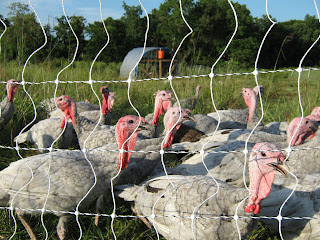It is well-known that Socrates wrote nothing, or at least nothing which has been handed down under his name alone. While the main source of our information about him comes by way of Plato, Aristophanes, and some brief remarks by Aristotle, there is another source - Xenephon - who presents an altogether different picture of the Gadfather.
Socrates, according to Xenephon, holds that the art of household management is one of (if not
the) highest arts, and that farming is central to its activity. Since the nineteenth century, however, Xenephon's Socrates has been largely occluded from consideration on grounds that his characterization was taken to be too simple-minded or philistine to represent the founder of Western political philosophy. Put differently, perhaps it is his subject matter - home economics and farming - that causes philosophers to ignore him. Perhaps not. In any case, in Xenephon's
Oeconomicus Socrates' central claim is that "not even the altogether blessed can abstain from farming. For the pursuit of farming seems to be at the same time some soft pleasure, an increase of the household, and a training of the bodies so that they can do whatever befits a free man." Socrates goes on:

"First, the earth bears, to those who work it, what human beings live on, and it bears in addition what they take pleasure in experiencing..."
"It exercises those who work with their own hands and adds to their strength, and it produces a kind of manliness even in those who are merely concerned with farming, causing them to rise early in the morning and compelling them to move about vigorously. For in the country as in town, the most important actions have always their proper season..."
"Further, the earth stimulates in some degree the farmers to armed protection of the country by nourishing her crops in the open for the strongest to take...."
"Furthermore, the earth, being a goddess, teaches justice to those who are able to learn, for she gives the most goods in return to those who serve her best..."
"At the same time farming educates in helping others. For in fighting one's enemies, as well as in working the earth, it is necessary to have the assistance of other human beings. The one who is going to farm well, then, must provide himself with eager workers who are willing to obey him...The farmer must often exhort his workers no less than the general his soldiers; and good hopes are no less necessary to slaves than to the free, but rather more so, that they may be willing to remain."
"Whoever said that farming is the mother and nurse of all the other arts spoke finely indeed. For when farming goes well, all the other arts also flourish, but when the earth is compelled to lie barren, other other arts almost cease to exist, at sea as well as on the earth."






































